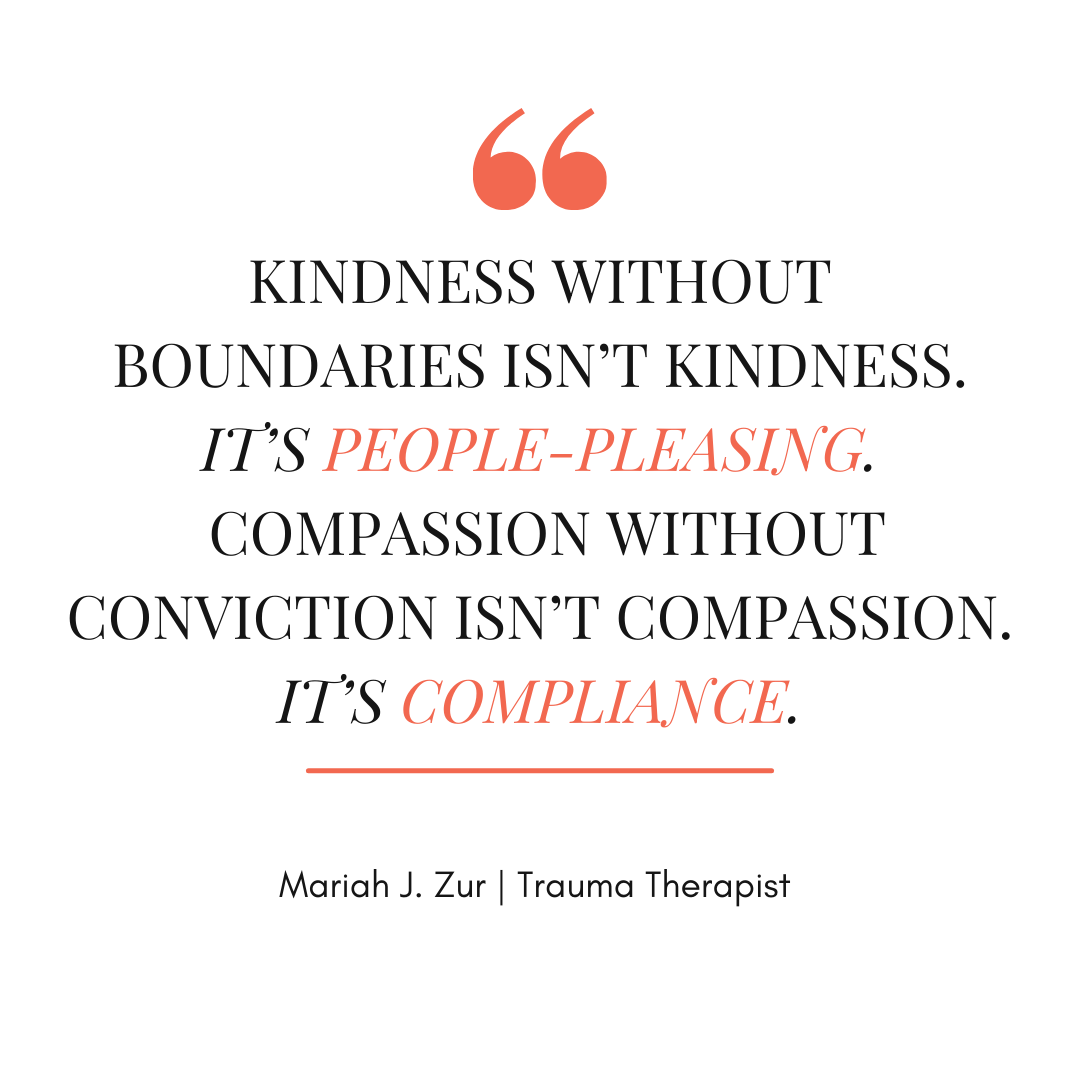Compassion Doesn’t Mean Compliance: Why Boundaries Are the Backbone of Real Kindness
The Story That Hooked Me (and Maybe You Too)
Last week, I sat in my office and listened to three different women, different ages, different stories, different lives, say almost the exact same thing:
“I didn’t want to make it worse, so I stayed quiet.”
“If I say how I really feel, I’ll sound mean.”
“I just keep the peace, even though it eats me alive.”
Sound familiar?
I’ll be honest, it hit me like a punch in the gut. Because I’ve been there too. Smiling when I wanted to scream. Nodding when I wanted to walk out. Calling it compassion when really, it was compliance.
And if you’re reading this, maybe you know that quiet erosion of yourself too.
The Lie We’ve Been Sold
Our culture has accepted a dangerous lie: that compassion requires compromise. That to “be kind,” you have to agree with everything and everyone, even when it violates your values.
But that isn’t compassion. It’s erasure.
True compassion isn’t about surrendering what you believe. It’s about how you treat people even when you don’t agree. You can hold firm to your values and still lead with kindness.
What the Research Says (Quick & Dirty)
This isn’t just opinion, it’s backed by data:
Self-silencing suppressing your own needs to keep the peace, is strongly linked to higher distress, depression, and lower relationship satisfaction (Røsand et al., 2012; Yücel, 2020).
Chronic people-pleasing might look like kindness, but it fuels anxiety, emotional exhaustion, and even burnout (Kuang et al., 2025).
Authenticity staying true to yourself, is consistently tied to better mental health, higher resilience, and healthier relationships (Grijak, 2017).
Translation: compassion without conviction will wreck you.
The Therapy Room Doesn’t Lie
Here’s what I’m hearing over and over this week in therapy:
“I don’t want to be too much.”
“I’m exhausted from being nice to everyone but myself.”
“I feel silenced because if I disagree, I’ll be rejected.”
“Scrolling social media makes me feel like I have to pick a side, and either way, I’ll lose.”
This isn’t just politics. It’s personal. It’s in marriages, friendships, families, workplaces. The pressure to be agreeable has never been louder. And it’s leaving people disconnected, resentful, and burned out.
Compassion With a Backbone
Kindness without boundaries isn’t kindness, it’s people-pleasing.
Compassion without conviction isn’t compassion, it’s compliance.
The world doesn’t need more silence. It needs braver compassion. The kind that says:
I can disagree with you without dehumanizing you.
I can show up with empathy without folding in on myself.
I can set a boundary and still love you.
That’s compassion with a backbone. And it’s uncomfortable, but it’s also where healing begins, individually and collectively.
Your Next Step
If you’re tired of being erased by “keeping the peace,” here’s what you can practice this week:
Notice where you self-silence. Do you bite your tongue with your partner? At work? Online? Name it.
Ask yourself: is this kindness or compliance? One protects your integrity, the other betrays it.
Set a micro-boundary. Say no to something small this week. Protect your energy without apology.
Healing doesn’t mean forgetting. It doesn’t mean rolling over. It means finding your voice again and trusting that your compassion doesn’t have to cost you yourself.
Final Word
Our culture glorifies “niceness” but what it really needs is honest, messy, brave compassion, the kind that has teeth and tenderness.
Compassion isn’t about compliance. It’s about conviction. And that conviction? It might just be the most loving thing you can bring into the world right now.



